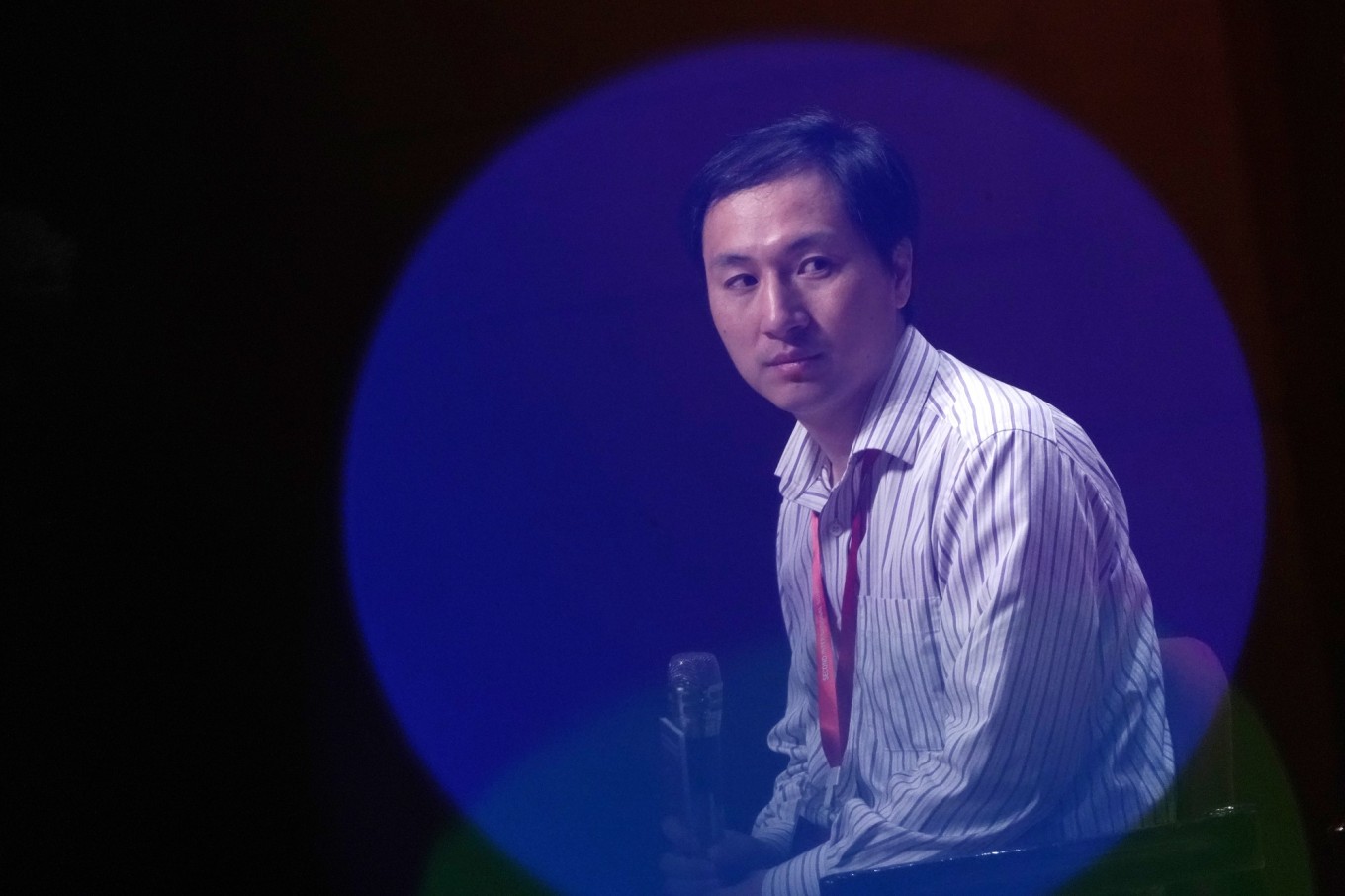Popular Reads
Top Results
Can't find what you're looking for?
View all search resultsPopular Reads
Top Results
Can't find what you're looking for?
View all search resultsChinese scientist reveals second gene-altered pregnancy underway
Change text size
Gift Premium Articles
to Anyone
T
he Chinese researcher who says he altered the genes of twin girls stood by his work Wednesday and revealed a second pregnancy amid growing condemnation of the controversial project.
He Jiankui, the Shenzhen-based scientist who shocked the world this week with his revelation, spoke for the first time at a genetics conference in Hong Kong and said that his study is currently on pause to monitor the development of the twin girls he claimed were born normal and healthy with edited genes in a bid to make them resistant to HIV. Embryos from seven couples were prepared for implantation in his trial, which resulted in a second pregnancy that’s in its early stage.
He was peppered with probing questions by peers in his first public appearance since revealing his experiment Monday. He’s been met with criticism from the Chinese and global scientific communities for work that is outlawed in the U.S. and many other countries. His revelations have sparked a robust debate on the ethical boundaries of gene editing and prompted calls for stricter regulation of the fast-developing gene editing technology.
On Wednesday, He defended his work, saying that the couples involved in the study were informed of the risks of the removal of the CCR5 gene, which he deleted in the twins using the powerful gene-editing tool Crispr in a bid to make them resistant to HIV.
“I feel proud,” he said of the twins’ birth, adding that using technology to help people with genetic diseases is “compassion.”
He’s work now faces allegations of fraud, three investigations in China and calls from prominent Chinese researchers for him to be punished. A senior Chinese government official has said his work is unlawful.
Harmonicare Medical Holdings Ltd., which owns the hospital that the researcher said he got approval from for his work, said in a filing Tuesday that it believed signatures on an application to the hospital’s medical ethics committee had been forged, and that the committee never met to review He’s proposal. The Shenzhen hospital has never participated in the clinical operation related to the gene-edited babies and the twins were not born at the facility, the company said.
Read also: Genetics summit holds breath for Chinese baby-editing details
Science and ethics
China’s state-backed Xinhua news agency reported Wednesday that the Chinese Union of Life Science Societies, an umbrella of 22 national-level associations, said that it strongly opposed research that violated the spirit of science and ethics, and that He’s case had “severely disturbed the order of scientific research and seriously damaged China’s international reputation in the life science field.”
Earlier, the Genetics Society of China, the Chinese Society for Cell Biology and a group of 122 scientists issued separate statements condemning He’s actions and called for the Chinese government to act. He is also under investigation by his university, the Southern University of Science and Technology, and the hospital where he supposedly had ethical approval for the experiment. Both bodies said they had no knowledge of the controversial undertaking.
On Tuesday, in the clearest sign yet that the Chinese government viewed He’s project as illegal, Deputy Minister of Science and Technology Xu Nanping said in a press briefing in Beijing that China had outlawed the use of gene-editing for fertility purposes in 2003.
But Chinese law does not mention the use of Crispr, the revolutionary gene-editing technique that He used to alter the twins’ genetic code. By contrast the U.S. and many other countries have strictly restricted Crispr’s use.
The most recent Chinese government pronouncement, a 2017 document from the science and technology ministry, said only that gene-editing research involves great risks and urged rigorous supervision.
In his Tuesday briefing, deputy minister Xu hinted at the internal debates the Chinese government has over how it should regulate burgeoning research areas like biotechnology and artificial intelligence. China wants to be a leader in the defining technologies of the 21st century, but lax regulation risks cases like He’s.
“We are conscious that it’s a double-edged sword. Sometime we feel quite anxious,” said Xu. “To be honest, on this question, we still haven’t completely straightened out our thinking. We know there will be some negatives but we also don’t dare - because there will be negatives - to avoid technologies or advancements.”’











